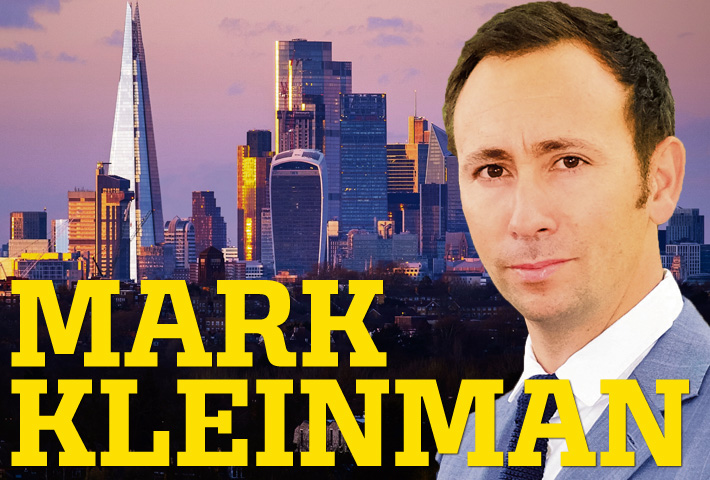Mark Kleinman: This licence to print money may soon run out of road

How’s that licence to print money going? Not so well if you’re a long-standing investor in De La Rue, the authentication and currency specialist which has managed to squander a market-leading position and hundreds of millions of pounds in shareholder value.
Oberthur Technologies, its French-based peer, tabled an indicative offer in 2010 worth 905p-a-share, or nearly £900m.
After a fierce battle, the cross-Channel raid was thwarted. It must now feel like the best French defeat since Napoleon. Since then, De La Rue’s stock has plummeted. The shares now change hands for little more than 50p.
A rescue rights issue in 2020 has failed to stem the tide. Indeed, discounting the £100m it raised then, its equity would now be virtually worthless.
For a company operating in markets with high barriers to entry, this level of value destruction is unforgivable.
So a degree of public frustration among De La Rue shareholders would seem inevitable. Yet efforts by Crystal Amber Funds, the vehicle run by prominent activist Richard Bernstein, to galvanise fellow investors have hitherto largely fallen flat.
Crystal Amber, which owns just shy of 10pc of the company, is putting it to the test again. As I revealed last week, it has written to the company to requisition a general meeting seeking the removal of Kevin Loosemore as De La Rue chairman.
In his place, the activist wants to install Pepijn Dinandt, a seasoned industrial turnaround executive.
It will be the third time in under a year that investors will have voted on Loosemore’s leadership. The first, at the 2022 AGM, saw him overwhelmingly re-elected; the second – a vote called by the company amid demands from Crystal Amber that he step down – produced the same outcome, albeit with a slightly narrower margin of victory.
Sources close to De La Rue label the decision to convene another poll a distraction from the focus on its turnaround plan.
They miss a simple point: that plan isn’t working. Only a few weeks ago, the company asked its pension trustees to consent to the deferral of £20m in payments into its retirement scheme. The list of mishaps goes on: in January, it disclosed that it was suspending banknote printing operations in Kenya, as well as an investigation into a former Indian finance minister in which it had become implicated.
A takeover or break-up of De La Rue looks as elusive as ever, leaving shareholders with an important choice: stick with the incumbent management team, or take a calculated risk that Dinandt can hardly make a worse fist of it than Loosemore.
It’s hard to believe that institutional investors can be so supine as to reject out-of-hand Crystal Amber’s efforts to revive a once-proud industrial name. If they do, its ongoing immolation will be on their watch too.
Ofgem has lost its spark
Is there a more hapless economic regulator operating in Britain today than Ofgem? If so, the list cannot be very long.
At every turn since the start of the energy prices crisis, Ofgem has been found wanting. To his credit, its chief executive has acknowledged some of its many shortcomings – most notably, at the end of 2021, as his organisation watched household gas and electricity suppliers toppling like dominoes, Jonathan Brearley admitted that its rules were insufficiently robust to contend with soaring prices. The result? A re-concentration of the industry among a small group of large players with balance sheets strong enough to cope with wholesale pricing shocks.
Recently, though, things have taken a more bizarre turn. It was bad enough that Ofgem failed to clamp down on the outrageous practice of some suppliers enforcing the installation of pre-payment meters in the homes of vulnerable consumers.
That scandal came to light only because of reporting by The Times. Instead of congratulating it on its investigative work, Ofgem sent legal threats to the newspaper in an attempt to uncover its sources. Grant Shapps, the energy secretary, made obvious his disdain for Ofgem’s behaviour, prompting a grovelling apology from its boss.
After I reported recently that the government was searching a new slate of Ofgem board members, I received a series of whingeing messages from its press office protesting at my description of the process as a boardroom overhaul.
This is self-evidently an organisation in crisis. Mr Shapps should now go further by finding a successor to Brearley with a readier grasp of the energy regulator’s priorities during arguably the most crucial period in the sector’s history.
Bounce back loans could give Manolete some spring
Investors in Manolete Partners, the litigation financing company, have had a humdrum ride since its London stock market debut in 2018. The shares listed at 175p, so at 242p yesterday, it would be hard to label them a disastrous investment.
One bright spot for the stock should be the pilot project it is working on with Barclays to aid the bank’s recovery of Covid Bounce Back Loans.
Early results have been encouraging, with 20pc of the 45 cases assigned to Manolete resulting in directors offering or agreeing to relay the misappropriated loan.
In a stock exchange announcement this month, Manolete said it was in advanced talks with another major UK high street bank about a similar programme.
Banking sources say the second lender in question is Lloyds Banking Group: a successful partnership there could be good for Manolete’s stock price – and be welcome news for British taxpayers.
